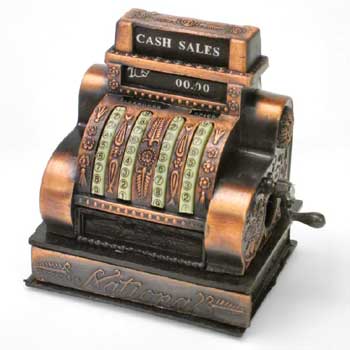
Valuing a business is always an imprecise science, even with large-cap public companies. For example – Is the true value of a large public company based on its market price? Its book value? Its potential worth if broken into parts that have more perceived value than the whole? The answer is that there are many ways to determine the value of a company. Perhaps the best way to understand the “value” of any business, large or small, is to look at who’s doing the valuing and for what purpose. For example, we’ll wager that you would value your family business differently for estate purposes versus for a sale of the business.
Regardless of how a business is valued, there are both quantitative and qualitative factors that play a role in a comprehensive appraisal. Many of the elements that go into a business valuation can be classified into three categories:
- “Hard numbers” such as historical profits, assets, cash flow, and liabilities are always important in determining the worth of a business.
- “Soft figures” such as income and cash flow projections can be very important to a buyer or investor interested in the company
- “Intangible assets” such as patents, brand names, quality or reputation of management, location, recipes, customer lists, or goodwill often contribute to the overall value of a business.
There are many reasons to value a business, and “the reason” for the valuation is typically an important factor in deciding how an appraisal will be performed. This is why in many instances, more than one value can be correct. As indicated above, two of the more common reasons to value a company are for a sale or for estate tax purposes. Other purposes for performing a valuation might include acquiring insurance coverage of various types, or attracting a new investor. There is also truth in acknowledging that the value is a willing buyer and a willing seller, regardless of the calculations in a 60-page report.
The key considerations that go into any valuation include:
- Company, competitor, and industry information. How is your business performing and how does it compare to your competitors? What is the state of your industry? Is your business in a growth industry or a declining one? A Peer Group Analysis (PGA) is a great tool to formally capture this data.
- Analysis of historical financial statements. Ratio analysis such as return on equity or gross margin is often helpful.
- Projected financial statements going out three to five years can be particularly significant, especially if they are recast to reflect the business without owner compensation. By recasting statements, the value can be estimated as if the business were under different ownership or managed under different circumstances.
- Using a method of valuation that is appropriate for the purpose of the valuation.
Three popular approaches to value a privately held company include:
- Balance Sheet Approach. This is the easiest way to value a business. It will more often than not, however, produce the lowest valuation. A company’s book value is simply a firm’s liabilities subtracted from its assets. Banks and insurance companies are often valued on this basis. Many analysts believe that using an “adjusted book value” formula will produce a more accurate picture because this method takes into account the fair market value of assets and liabilities rather than a firm’s “historical book.” Liquidation value is another way of using a company’s balance sheet to arrive at a value. In this method, you simply calculate what’s left after the assets are sold and the debts are paid. What’s left is the value. This can also vary between a fair market value (FMV), an orderly liquidation value (OLV), and a forced liquidation value (FLV).
- Market Comp Approach. In this approach, private companies are compared to comparable public companies. For example, if a similar public company is valued at say, 23 times current earnings, then that yardstick can be applied to estimate the value of the private company. When using multiples, private companies are usually adjusted downward because of the lack of liquidity. While it can vary greatly, it is not uncommon to see a public company trade at 3x the value of its non-public counter part simply because of the liquidity premium. Non-financial comparisons might include companies with similar products, markets, or industry criteria. Financial comparisons might include size (revenues), EBITDA, cash flow, price to book (P/B), price to earnings (P/E), price-earnings-growth (PEG), or M & A comps.
- Discounted Cash Flow Approach. Simply stated, this means that an analyst capitalizes an anticipated income stream or cash flow in the future. This is accomplished by discounting a company’s future income or cash flow at an assumed opportunity cost of capital, which takes into account the risk or uncertainty in future cash flows. This is called bringing future anticipated income to “present value.” This approach will generally, but not always, produce the highest value, but it can be manipulated by how aggressive the forecasts are.
Most companies are valued for the purposes of a sale, merger, or investment. For this reason, we must mention the concepts of fair market value and investment value. Fair market value is the value established between a willing buyer and a willing seller – it’s just that simple. Even though a seller and buyer may arrive at fair market value in entirely different ways, it doesn’t matter. Investment value, on the other hand, is generally regarded as FMV adjusted (upward) for the special benefits that a buyer accrues from acquiring the new entity. These benefits might include cost savings or added purchasing power.
The good news is that regardless of the valuation method employed or how the value is determined, no one can claim, “You’re Wrong.” But, do keep in mind that not everyone will necessarily agree with your assessment, and may question the underlying assumptions that led to your valuation. For serious valuations, there are a number of professional services providers throughout the United States (including Cayenne Consulting) that specialize in valuing private companies.
